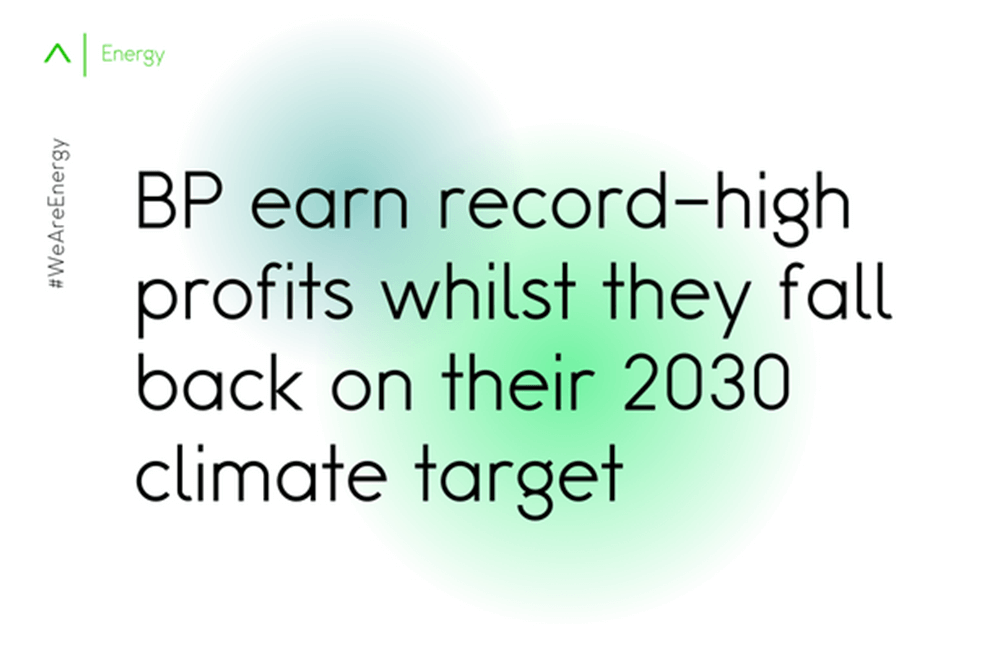BP earn record-high profits whilst they fall back on their 2030 climate target
15 Feb, 202310 minsEnergy prices have soared since Russia invaded Ukraine last year. Yet, energy giant BP has r...

Energy prices have soared since Russia invaded Ukraine last year. Yet, energy giant BP has recorded record annual profits of 23 billion pounds. Bernard Looney, CEO of BP, claims the company has been, “helping provide the energy the world needs" while investing in the transition to green energy.
On top of announcing record profits, BP also increased its payout to shareholders by 10%. Likewise, energy company Shell has recorded a similar rise in earnings of 40 billion dollars.
With this information shocking the general public, who are struggling to pay high bills, there have been shouts for energy companies to pay more tax.
Falling Back on Climate Targets
The company claims to be planning to cut carbon emissions by massively reducing its oil and gas output by 2030, previously having promised that emissions would be 35-40% lower by the end of this decade. With a goal of net zero emissions by 2050.
Despite this, they are now targeting a slightly lower 20-30% cut, claiming the need to keep investing in oil and gas to meet the current high demands.
Greenpeace, a climate campaign group feel that BP’s new strategy "seems to have been strongly undermined by pressure from investors and governments to make even more dirty money out of oil and gas".
Since the end of Covid lockdowns, energy prices have soared but rose even further in March 2022 after Russia invaded Ukraine. Since then, serious concerns have been raised about global supplies and pricing.
Whilst households and businesses suffer from expensive bills, energy companies appear to be profiting vastly from the current situation.
Should Windfall Tax be Increased Further?
A windfall tax was introduced in 2022, called the Energy Profits Levy, on the large profits being made by energy companies. The tax only applies to profits made from extracting UK oil and gas, but is set at 35%, originally set at 25%.
With this in mind, oil and gas companies also pay 30% corporation tax on their profits as well as a supplementary 10% rate. This means that their total tax rate to 75%. This meant that BP paid 1.8 billion pounds in UK tax last year.
The main aim of this windfall tax was to encourage re-investment of the sector's profits back into the economy
According to Nick Butler, Senior Executive at BP, oil and gas prices will not remain "exceptionally high" forever, "This is a temporary situation. Oil and gas prices are going down and the windfall these companies are making won't last."
Final Thoughts
Controversially, BP will be missing its target of reducing oil and gas production by 40% by 2030 and as a result, Labour thinks that their taxes should still be higher, calling the government to further increase windfall tax.
Sadly, the average home is now spending £2500 per year on energy bills, which is more than double what it was one year ago.
The question remains whether BP’s plans to fall back on their 40% emission cut can be justified, especially when they are hitting record-high profits.


